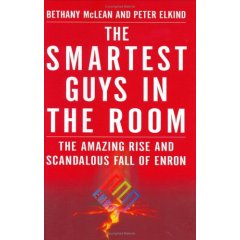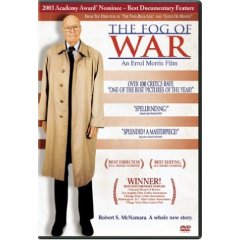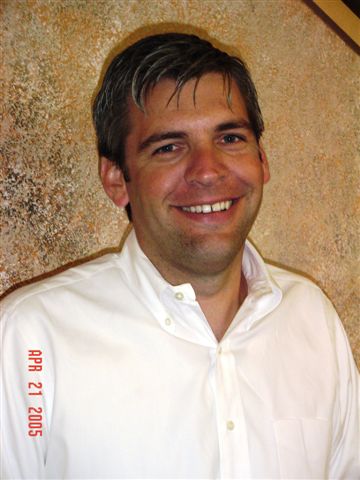
I’ve written about this before, but since the issue won’t seem to go away I can’t help but expound further on this opportunistic move by some in congress to attack “wild” profits by big oil.
This is the most disingenuous, opportunistic attack on American business by the United States congress in years. This is motivated by politicians looking to curry favor with people who either can’t understand, or have not taken time to understand the implications of what they propose.
In 2005, Exxon Mobil made a profit of $36.130 billion dollars, the “largest” profit in U.S. history. In fact, this profit is so large that it is bigger that according to Fortune it is larger than the profits of the next four companies on the list combined! No one is denying that’s a lot of money, but the argument of many Senators and Congressman only focuses on that single number by itself. Anyone who has attended business school (and paid attention) understands that a net income number by itself is meaningless. Without further information you can’t compare this net income number to any other company’s earnings with any meaning. This makes the description, “the largest profit in U.S. history” totally fallacious. The real question is “how much invested capital did it take to make that $36 billion in profit?” Without answering that question there can be no comparing bit oils profit.
Anyone who has taken a basic accounting class understands that investors and managers have a whole host of different ratios that help them compare one business to another. Return on equity is an investor’s measure that helps you evaluate an investments potential. Return on assets is a measure of management’s ability to create value given all of their available assets, equity and debt. The most common measure of profitability used to compare companies’ profits is profit margin or net income divided by revenue. Profit margin is most useful when comparing companies in the same industry – that is, given similar market circumstances, which company is best using it’s assets to produce profits. In this way, you can compare a very large oil company like Exxon Mobil (339 billion in sales) with a smaller petroleum refining company like Holly (3.2 billion in sales) to see which one is a better operator in its industry (Exxon wins this round with 11% profit margin versus Holly’s 5%).
Measuring profit margin’s across industries has less value when measuring cross industry. However, when looking to measure a purely theoretical question like “who is the most profitable company in the world?” it is a far more pure and better measure than a flat net income number. The flat income number is just a number, profit margin actually conveys real information.
So in that vein, how profitable is Exxon Mobile. For fiscal year 2005 the company posted earnings as we said of $36 billion dollars on over $339 billion dollars in sales, producing a profit margin of 11%. Let’s stop there for a second. This is a fantastic feat. It should take a up a separate post, but Exxon Mobile’s management deserve all of the high compensation retirement packages they earned. Managing such a vast enterprise that produces $339 billion in sales is a monumental task (it’s “harder” to grow a large company than a very small one, especially in a mature industry). Managing it for a double digit profit is something to be applauded. However, as profit margins go, that is “most profitable company as a percentage of their sales,” there are hundreds of companies more profitable than Exxon Mobil.
Flipping through the April 17th issue of Fortune, including the annual Fortune 500 list unearths tons of companies with higher profit margins than Exxon Mobile. An excellent example is banking. Of the thirty companies in the Fortune 500 in category of Commercial banking how many do you suppose are more profitable than Exxon Mobil? The answer is, twenty-eight. Two companies have the same 11% profit margin as Exxon Mobil, all the rest have profit margins ranging from 13% (Commerce Bancorp) all the way up to 27% (North Fork Bancorp). Where’s congress? Shouldn’t we be taxing these “unfair” profits?
Okay, so maybe that’s a bad category. Let’s go to a different category. Computer software. Of the ten companies in the Fortune 500 from this category, how many are more profitable than Exxon Mobil? The answer is seven. Microsoft takes the lead with a 2005 profit margin of 31% (nice work if you can get it).
The list of companies with a higher profit margin than Exxon Mobil goes on and on. McDonald’s 13%. Plum Creek Timber 22% (obscure, I know). Illinois Tool Works 12% (should we protest?) Verisign 24%. FM Global 20%. Google, cute, cuddly Google – 24%!
The bottom line is that Washington D.C. hacks need to immediately stop demonizing business in the United States of America. There are most definitely “bad guys” in big business, ala Enron that need to be watched. Government absolutely should play a role. However, too often in this country legislators choose to make business (and big business in particular) into the bad guys. Large enterprise in this country is the “engine of democracy.” It is the back bone of this country. It employs our citizens, provides investment opportunity for millions (think of your 401k and your dad’s pension), and generates revenue from which all taxes direct or indirect are derived.
The most ironic part of this whole laughable suggestion by congress that big business is gouging the people is that it’s in fact congress that is gouging us. They’re like the “good” Samaritan that tells you someone stole your wallet, wall pick pocketing your car keys. If congress wants to bring down the price of gasoline and stop price gouging, consider cutting gas taxes, which the U.S. gets revenues estimated to be twice the size of the profit that big oil is making from each gallon of gas.




